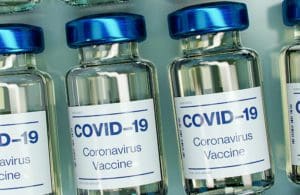
[Photo by Daniel Schludi on Unsplash]
A single dose of Pfizer or Moderna vaccine is about 80% effective at preventing COVID-19 infection at least two weeks after injection. The efficacy level rises to 90% two weeks after the second dose of either mRNA vaccine, according to a recent CDC study involving roughly 4,000 essential workers.
In contrast to the Phase 3 trials from Pfizer-BioNTech and Moderna, the CDC study analyzed vaccines’ ability to prevent COVID-19 infection. Study participants underwent weekly COVID-19 testing for 13 consecutive weeks.
Conversely, the Pfizer-BioNTech and Moderna Phase 3 trials sought to analyze their vaccines’ ability to prevent symptomatic COVID-19 disease. Participants in the Pfizer had to have at least one COVID-19 symptom before they received a SARS-CoV-2 test. Study volunteers in the Moderna trial had to have at least two systemic symptoms or one respiratory symptom such as cough to qualify for a test.
The CDC study, like those from Pfizer-BioNTech and Moderna, used reverse-transcriptase polymerase-chain-reaction (RT-PCR) testing to confirm infections.
In addition to administering weekly testing, the CDC study also monitored participants for COVID-19–related symptoms. The weekly testing regimen detected 58% of the total COVID-19 cases, while the study organizers detected the remaining 42% after the onset of COVID-19 symptoms.
The majority of PCR-confirmed infections were identified by weekly specimens (58.0%), whereas 42.0% were identified from samples collected at the onset of COVID-19–associated illness.
The study participants included healthcare workers, first responders and frontline workers in hospitality, delivery, retail and education. Workers in such fields are more likely to be exposed to the novel coronavirus than the general public. Participants were based in six states, including Arizona, Florida, Minnesota, Oregon, Texas and Utah.